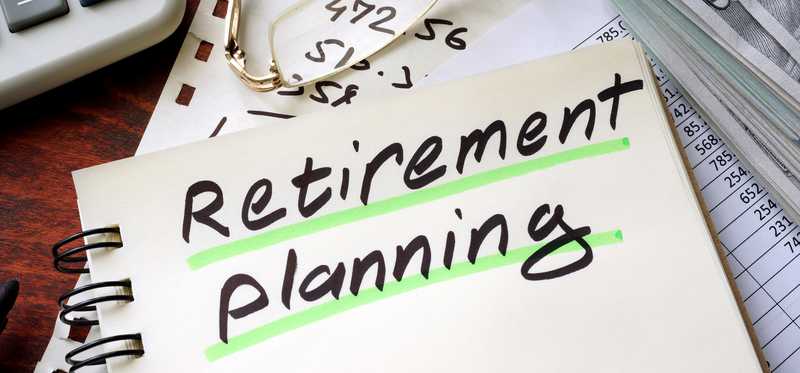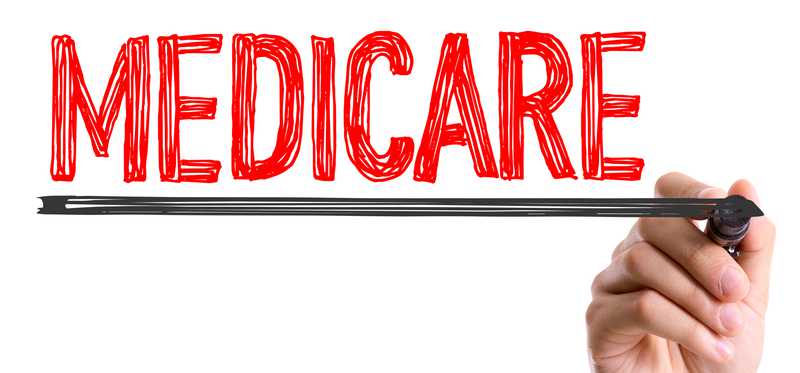Retiring in 2019? Here's Your Essential 19-Point Checklist

Retiring in 2019? Here's Your Essential 19-Point Checklist
There’s a lot to do before you retire
Retirement is often seen as an easier time in life. While this may indeed be true for many people, there’s certainly a lot to do in the months and years leading up to your retirement date. If you’re planning on leaving the workforce for good in 2019, here’s a checklist of things you may want to do first.
ALSO READ: Is the Right Time to File for Social Security as Soon as You Stop Working?
Previous
Next

Know your full Social Security retirement age
Social Security is a major source of retirement income for most American seniors, so before you retire, it’s important to have a general idea of how much you can expect from Social Security. Since Social Security can be claimed at any point between ages 62 and 70, the first step in estimating your Social Security benefits is to know your full retirement age.
If you were born in 1954 or before, your full retirement age is 66 years old. If you were born in 1960 or later, your full retirement age is 67 years old. And finally, if your birth year falls in between those, your full retirement age is between 66 and 67.
Previous
Next

Know what to expect from Social Security
If you’re planning to retire in 2019, the best estimate of your Social Security benefits can be found by viewing your most recent Social Security statement. You can do this at www.ssa.gov by logging in to your “my Social Security” account or creating one if you haven’t already done so.
However, your statement will give you three estimates -- your estimated benefits at your full retirement age, as well as at ages 62 and 70. If you plan on claiming at any age other than these three, you’ll need to adjust your estimated benefit upward or downward accordingly.
Previous
Next

Decide if you want to claim benefits now or wait
If you have substantial retirement savings, you’ll need to decide whether you want to claim Social Security right away or live off of your retirement savings for a few years. The benefit to the latter approach is that your Social Security benefit gets substantially larger the longer you wait. And, keep in mind that Social Security is inflation-protected income, so it can be a good strategy to let it grow as large as possible.
Unfortunately, there’s no one-size-fits-all answer to this question, so consider the pros and cons of both options if you’re in a financial position to do so.
Previous
Next

Consider your spouse’s situation for Social Security
If your spouse didn’t work, or earned comparatively little, it’s a smart idea to educate yourself on Social Security spousal benefits.
To make a long story short, if your spouse’s own Social Security benefit is less than half of your full benefit amount, a spousal benefit can kick in to make up the difference. In other words, if you are entitled to $1,800 per month at full retirement age, a spousal benefit could bring your spouse’s benefit up to as much as $900.
One key point to remember is that spousal benefits don’t continue to grow after your spouse’s full retirement age. And, your spouse can’t claim a spousal benefit until you claim your own. So, if your spouse is entitled to a benefit based on your work record, it rarely makes sense to delay Social Security beyond their full retirement age.
ALSO READ: The Selfish Social Security Decision You Shouldn't Make
Previous
Next

Make a retirement “budget”
The average retiree needs about 80% of their pre-retirement income in order to maintain their lifestyle, but this isn’t a perfect figure for everyone.
One smart thing to do before you retire is to determine the amount of income you’ll be able to generate from your savings, Social Security, and any other sources. Then, come up with a budget in order to ensure that your spending will be sustainable.
Previous
Next

Make sure you’ll have enough income
The other side of the equation is to make sure that you have enough income to comfortably retire. While there’s more to this than I can explain in a paragraph or two, here’s a quick way to estimate how much income you can sustainably generate:
- Get an estimate of your Social Security benefit
at www.SSA.gov.
- Divide your retirement savings by 25 (According
to many experts, this will give your safe annual withdrawal rate).
- Consider any other sources of income you have,
such as pensions or annuities.
- Convert all of these to monthly figures
and add them together.
Previous
Next

Plan your withdrawal strategy
I briefly alluded to this on the previous slide, but one of the most popular retirement savings withdrawal rules says that you can safely withdraw 4% of your savings during your first year of retirement and increase your withdrawals to keep up with inflation in subsequent years, without fear of running out of money. To calculate this, multiply your retirement savings by 0.04 or divide by 25 (same thing).
Previous
Next

Try to pay down debt before you retire
One popular retirement strategy, especially if you don’t have enough income to replace 80% of your salary, is to strategically pay off major debts before you retire. For example, if you pay off your mortgage and auto loans before you retire, these are two big monthly payments that you won’t have to continue making.
Previous
Next

Check your asset allocation
After you retire, your asset allocation -- meaning, the proportion of your savings that are invested in stocks, bonds, and cash -- may need to change. Specifically, now that you’ll be actively relying on your savings to cover living expenses, your risk tolerance is considerably lower.
You can read my thorough primer on asset allocation, but one good rule of thumb is to subtract your age from 110 to determine your maximum stock allocation. For example, a 70-year-old should have no more than 40% of their retirement savings in stocks and stock-based investments.
Previous
Next

Review your estate planning documents
Have you not updated your will recently, or do you not have one at all? Are the beneficiaries for your insurance policies and various retirement accounts up to date? While you’re preparing to retire, it’s a good time to do a quick estate-planning checkup. And if you’re one of the fortunate few who need to worry about the estate tax, a good estate-planning attorney can help you limit your eventual tax liability.
Previous
Next

Do you have any paid time off that you’ll lose? Use it!
Some employers pay retirees for any accumulated vacation days when they leave work, but this isn’t universally true. Many employers have a use-it-or-lose-it type of vacation and sick day policy. If this applies to you, keep it in mind as your retirement date gets closer -- after all, you’ve earned the time off, so you may as well use it.
Previous
Next

Where will your healthcare come from?
If you’re 65 or older when you retire, the answer to this question is easy. You’re eligible for Medicare, so your healthcare needs will be covered. I’ll cover some details about Medicare on the next couple slides.
On the other hand, if you aren’t 65 yet when you retire, one of the most important questions you need to be able to answer is “where will my health insurance come from?” Some fortunate retirees are allowed to keep their ex-employer's coverage after retirement -- this is particularly common in the public sector. If not, you’ll need to buy your own insurance (under no circumstances should you plan to go without health insurance in retirement -- even for a little while), and you’ll need to budget for its cost until you’re Medicare-eligible.
Previous
Next

Do you need to apply for Medicare?
If you’re already receiving Social Security benefits when you turn 65, Medicare enrollment will occur automatically. If not, you’ll need to apply. The process isn’t terribly complicated, and you can choose to apply for both Social Security and Medicare together or Medicare all by itself (both on the SSA’s website) if you aren’t ready to claim Social Security just yet.
Your initial enrollment period is a seven-month window that stretches from three months before to three months after the month of your 65th birthday. Your Medicare Part B premiums can be permanently increased if you don’t sign up during this period without a good reason for the delay, so be sure you remember to apply.
Previous
Next

Do you need a Medigap plan?
One important thing for pre-retirees to realize is that Medicare won’t cover all of your healthcare expenses in retirement. In fact, Fidelity estimates that the average 65-year-old couple will end up spending $280,000 out-of-pocket on healthcare throughout their retirement.
If you’re worried about this, consider getting a Medicare Supplemental Insurance plan, also known as a Medigap plan. There are several levels of Medigap plans available, and the exact details and costs vary by your location, but every provider offers a “Plan F” option, which is the most comprehensive and covers virtually every deductible and copay retirees could face.
Previous
Next

Will your Social Security be taxable?
Social Security benefits can be taxable if your retirement income is above a certain level. The IRS considers a figure known as your combined income, which includes your income from all other sources as well as half of your Social Security benefits. Depending on how high your combined income is, as much as 85% of your Social Security benefits can be subject to federal tax.
The short version is that if Social Security makes up most of your retirement income, your benefits probably won’t be taxable. On the other hand, if you have a substantial amount of income from other sources, you may get taxed on at least some of your Social Security benefits.
Previous
Next

Consider long-term care insurance
One big potential healthcare expense that Medicare generally does not cover is long-term care, such as in-home health services or extended stays at assisted living facilities. And, these costs can be expensive -- in many states, a private room in a nursing home comes with a six-figure annual price tag.
So, while you’re still relatively young, you may want to consider getting a long-term care insurance (LTC insurance) policy. Premiums get significantly more expensive the longer you wait to obtain a policy, so it could be smart to act sooner rather than later.
ALSO READ: 75% of Retirees Underestimate This Lurking Expense
https://www.fool.com/retirement/2018/11/30/75-of-retirees-underestimate-this-lurking-expense.aspx?source=isesitlnk0000001
Previous
Next

Is your state retiree-friendly?
It isn’t just the weather that sends many retirees heading for Florida. The state also has a below-average cost of living, no state income tax, and gives seniors a break on property taxes. There are several other states that are particularly cost-friendly for retirees.
While packing up and moving to another state certainly isn’t a smart (or practical) option for everyone, it could be worth considering if you’re open to a geographic change -- especially if you’re currently in a high-cost state.
Previous
Next

Need extra money? Consider a reverse mortgage
One thing to keep in mind as you approach retirement, especially if you have lots of home equity, is the idea of a reverse mortgage. A reverse mortgage, as the name implies, works in the opposite manner as a traditional mortgage. Instead of you making payments to a bank in exchange for equity in your home, the bank makes payments to you, which are secured by the equity you already own.
A reverse mortgage isn’t the best idea for everyone, but it can be an effective way for some retirees to significantly increase their income after leaving the workforce.
ALSO READ: Here Are Americans' Top 3 Retirement-Planning Regrets
Previous
Next

Figure out your next steps
While it’s not really a financial concern, one of the most important questions you need to answer before you retire is “What’s next?” In other words, you’re used to having something (your job) that occupies a big portion of your time. When that’s gone, how will you fill the hours. You could volunteer your time somewhere, get a part-time job that you find enjoyable, or plan to travel around the U.S. in a motorhome, just to name a few examples. There are lots of ways to avoid boredom in retirement, and the best time to start crafting a plan is before you actually retire.
The Motley Fool has a disclosure policy.
Previous
Next
Invest Smarter with The Motley Fool
Join Over Half a Million Premium Members Receiving…
- New Stock Picks Each Month
- Detailed Analysis of Companies
- Model Portfolios
- Live Streaming During Market Hours
- And Much More
READ MORE
HOW THE MOTLEY FOOL CAN HELP YOU
-
Premium Investing Guidance
Market beating stocks from our award-winning service
-
The Daily Upside Newsletter
Investment news and high-quality insights delivered straight to your inbox
-
Get Started Investing
You can do it. Successful investing in just a few steps
-
Win at Retirement
Secrets and strategies for the post-work life you want.
-
Find a Broker
Find the right brokerage account for you.
-
Listen to our Podcasts
Hear our experts take on stocks, the market, and how to invest.
Premium Investing Services
Invest better with The Motley Fool. Get stock recommendations, portfolio guidance, and more from The Motley Fool's premium services.